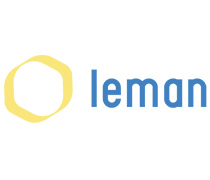Leman Biotech Co., Ltd. (referred to as “Leman Biotech”) and Hangzhou Neoantigen Biotechnology Co., Ltd. (referred to as “Hangzhou Neoantigen”) have recently entered into a collaboration to explore the potential of Meta 10 technology in the development of personalized neoantigen cancer vaccines. Neoantigen cancer vaccine utilizes dendritic cells to activate antigen-specific T-cells, enabling them to target and eliminate tumor cells. Meta 10 technology has the ability to enhance the therapeutic effects of T cell-based cancer immunotherapy. The combination of Meta 10 technology and neoantigen cancer vaccines has the potential to improve the therapeutic efficacy of neoantigen cancer vaccines. This collaboration aims to advance the research and development of next-generation personalized cancer precision immunotherapy drugs for the treatment of solid tumors, with the goal of addressing the issue of “post-surgical recurrence.”
Current therapies for cancer patients often involve radical surgery. However, even after standard postoperative adjuvant therapy, there remains a significant risk of tumor recurrence, presenting a substantial unmet clinical need. Hangzhou Neoantigen specializes in the development of precision immunotherapy products based on cancer neoantigens, utilizing advanced artificial intelligence technology. They are one of the pioneering teams globally involved in the development of neoantigen-related product.
Hangzhou Neoantigen developed personalized cancer therapeutic peptide vaccine, known as P01, which is China’s first personalized drug to enter clinical trials. Early-stage investigational trials have treated approximately 80 patients, demonstrating the safety and efficacy of injectable P01. The findings have been published in reputable international clinical medical journals, including Clinical Cancer Research. P01 is a personalized therapeutic peptide vaccine tailored to each patient’s specific tumor neoantigen. Subcutaneous injection of P01 activates neoantigen-specific T-cells, facilitating the effective recognition and elimination of tumor cells.
Leman Biotech’s metabolic reprogramming technology, Meta 10, has shown in preclinical studies to effectively stimulate the oxidative phosphorylation metabolism of terminally exhausted T-cells. This process restores the proliferative potential and cytotoxic activity of these T-cells, induces the generation of stem-like immune memory cells, and prevents tumor recurrence. Meta 10 metabolic reprogramming technology enhances the therapeutic potential of T-cell-based cancer immunotherapies. Recently, an investigator-initiated clinical trial (IIT) of Meta 10-enabled metabolically enhanced CD19 CAR-T therapy demonstrated its safety and clinical efficacy. Notably, the first four treated patients achieved complete responses at an impressively low dose of 5% of the dose typically used for conventional CD19 CAR-T therapy. Leman Biotech has already established strategic collaborations with prominent companies in the field of cancer immunology to jointly advance the clinical application of Meta 10 technology.
This strategic partnership with Hangzhou Neoantigen is expected to enhance the cytotoxic effect of neoantigen-specific T-cells against tumor cells, expedite the clinical development of individualized therapeutic peptide vaccines, and contribute to the rapid advancement of precision medicine.

